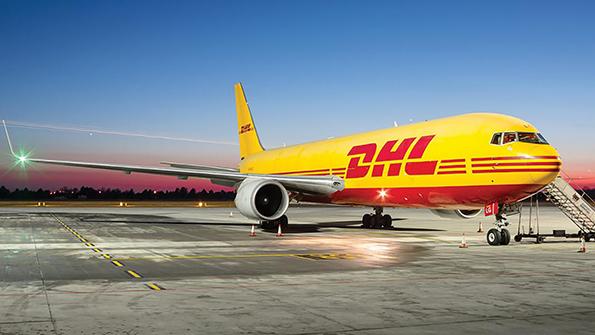
DHL Express MENA is upgrading and expanding its Bahrain-based cargo fleet with Boeing 767-300Fs.
Helping to drive the e-commerce boom is the fact that in certain regions of the world, the phenomenon has hardly scratched the surface of underlying demand. The 35 million-strong population of Saudi Arabia, for example, is rapidly waking up to the attraction of overnight delivery and this is helping drive the expansion of cargo in the Gulf.
A small, but typical, example is Texel Air of Bahrain.
The company began life in 2013 with a single Boeing 737-300F. That was joined by a pair of Pemco-converted 737-700FlexCombis, which can have multiple internal configurations to accommodate passengers as well as cargo. In the past year, the company has added a pair of 737-800BCFs, with a further two to come.
One of the 737-800BCFs is wet-leased to express packages giant DHL, whose own fleet has expanded rapidly in recent years. In 2019, for example, the company’s Bahrain-based operation, DHL Express MENA, operated eight Boeing 767-200Fs. Today, the legacy -200Fs are being steadily replaced by significantly more capable -300Fs and the fleet has grown to 15.
COVID spurred millions of consumers worldwide to begin ordering online and the waning of the pandemic restrictions has not decreased consumers’ desire for rapid deliveries of purchases. “That’s not abated,” said Richard Gale, DHL Express MENA’s VP aviation, at the Bahrain Air Show in November.
Additionally, the closure of Ukrainian and Russian airspace has meant that more freight traffic is now swinging south through the Gulf, and Bahrain in particular.
“Over 75% of our block hours are now intercontinental,” Gale said. “Four years ago, it was close to zero.”
A new arrival in Bahrain is MENA Cargo, which started operations in 2021 with a single 737-300F. At the Bahrain show it signed a strategic alliance with Singapore’s Asia Cargo Network that will see the Asian carrier initially basing a 737-300F, an -800 and a 767-300F in Bahrain, with more planned to follow.
